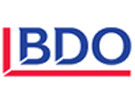Major constant flows of money, unusual transactions, an intermediary abroad that bills a considerable fee for their obscure services; international entrepreneurship comes with risks for the fresh produce trade as well. “As a company, you’re responsible when you’re not critical enough,” warn Wilco de Winter and Meryem Deniz of BDO. In this interview, they give tips on the internal measures companies can take.
“In recent years, there’s been increased attention paid to matters like corruption risks, in part from regulations, in part from the government. Sometimes, part of the responsibility for this is even placed with the accountants, but companies in particular have to be alert whether there are indications for abuses,” Meryem says. “It’s not always clear whether an invoice for customer A is actually paid by customer A as well. When that money doesn’t come from your buyer, an organisation could wonder why a decent company would do that. An accountant that can’t immediately place a payment, should be alert right away.”

“Mind you, we’re not talking about clear fraudulent practices. However, we’ve noticed a lot of companies are unaware that they’re part of corrupt practices and facilitate major flows of money in that. Paying attention to the descriptions of payments and the ‘routing’ of money flows is very important in this. When it comes to ‘routing,’ we mean that as an organisation, you shouldn’t have an unnecessary amount of money flows through your organisation. After all, Dutch organisations are internationally regarded as reliable, and are therefore popular as ‘secretary,’” Wilco says. “For companies, it’s therefore important to make policies regarding these matters. These could state, for example, the kind of customers you’re looking for. You can’t always stick to your policy, but you can take steps in the right direction to formalise more procedures.”
“Naturally, not every unusual transaction is a money laundering practice, but entrepreneurs aren’t crazy. When something doesn’t feel right, you should sound the alarm or bring in external knowledge to asses the transaction. Fortunately, we’ve seen companies becoming increasingly more alert, and that’s justified. After all, the consequences can be major. A criminal investigation can have a major impact on a company. It could be a fine, but the damage to the company’s reputation can also be severe. That’s why it’s so important to take internal measures, and prevent risks,” Meryem says.
“Of course we understand that companies can’t change their business overnight, but the least they could do is be prepared when exploring a new market. It’s very important to know your business partners. Take, for instance, a market like Iran: A lot of money can be earned here when possible, but deciding to do so closes off other sales markets,” Wilco warns.
“Because some company processes have remained unchanged for years, companies aren’t aware certain transactions can be defined as unusual. In the Netherlands, we have very clear rules: we draw up contracts together and the money is transferred to your bank account. That’s not always the case abroad. The rules can be very different there, there could be a lot of cash exchanges or intermediaries with unclear roles. That’s why we advise companies to be aware of the culture of the country they’re doing business with. What are the values, norms and customs regarding agreements, gifts and payments? Only then will you know who you’re in business with, and can you make a comparison to the Dutch situation.”
 For more information:
For more information:
Wilco de Winter / Meryem Deniz
BDO
+31 (0)70 33 80 756
wilco.de.winter@bdo.nl
Meryem.Deniz@bdo.nl
www.bdo.nl/nl-nl/branches/flowers-food
